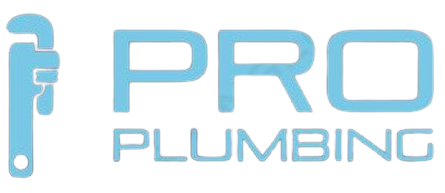Introduction
As worldwide water resources face heavier demands, saving water in all parts of our lives, especially at home, is very important. Current plumbing technology is key to helping with this, as it gives us new ways to cut back on water use. These improvements not only keep our water safe but also help people lower their water costs. By embracing these technologies, homeowners can play a key role in creating a sustainable future. It’s all about making smarter choices in plumbing that can tackle the bigger environmental issues we face today!
Plumb It Smart: Discover the Innovative Plumbing Systems For Modern Home Improvement
Smart plumbing is a smart step towards home and business maintenance, changing how we deal with water systems. It does more than regular plumbing, giving us better control and guidance on how to use water. Since we’re all trying to save resources and want things to be easier, smart plumbing is paving the way for efficient water conservation.
Let’s make a smart plumbing move with these innovative plumbing systems:
- Smart Water Heaters
Smart water heaters, particularly tankless ones, deliver instant hot water at the point of use, minimizing energy waste and heat loss. They come with features like remote control and temperature scheduling, providing hot water only when needed, unlike traditional tank models.
- How it functions:
Smart water heaters use sensors and advanced controls to heat water only when it is needed, optimizing energy consumption and providing hot water on time.
- Smart Leak Detection Systems
Smart leak detection systems use sensors to detect leaks immediately. This immediate detection of leaks alerts homeowners about the potential problems before they cause severe damage. Smart water detection systems can automatically turn off the water supply to prevent flooding.
| Protip! Leak detectors can be installed in kitchens, bathrooms, and basements to monitor for leaks. |
- How it functions:
Sensors are placed in high-risk areas such as under sinks and near water heaters. These sensors will monitor the changes in water pressure or flow.
- Smart Faucets
Water saving features, a precise temperature control system, and a touchless operation system are all the benefits provided by smart faucets. These faucets are designed in a way that you can control the specific amount of water according to your need, like handwashing or filling a glass of water.
- How it functions:
Smart faucets use sensors to detect motion and automatically turn on and off, as well as adjust water flow and temperature.
- Smart Water Meters
Smart water meters measure water consumption in real time. This enables homeowners to capture their water usage and monitor water conservation. Homeowners can also detect leaks or excessive water usage with the help of data.
- How it functions:
These meters rely on wireless transmission to automatically send information to a monitoring system that can further quantify and analyze your water use behavior.
- Water Softener Systems
Smart water softeners can decrease water hardness and assist in avoiding mineral buildup in appliances and pipes. This can create a longer life for your plumbing fixtures and fewer repairs. Water that is softened can improve the usage of water heaters, washing machines, and dishwashers.
- How it functions:
These systems use ion exchange or other technologies to remove calcium and magnesium ions from the water, making it softer.
- Greywater Recycling Systems
These systems capture and treat wastewater from sinks, showers, and washing machines and reuse it for applications like flushing toilets or irrigation. Therefore, reducing total water consumption and water resources.
- How it functions:
Greywater is collected, treated, and filtered, after which it can be reused. Greywater can be used for flushing toilets or watering gardens, allowing for less potable water to be used.
4. Conclusion
In conclusion, smart plumbing systems are changing the way we utilize this smart resource in our homes. Smart water heaters, leak detectors, and greywater recycling systems are some of the technologies that can help homeowners save water and money while staying green at home. Investing in a smart plumbing system provides many advantages for the individual home and the environment, and using less water is just one of the many benefits. Investing in smart plumbing is a step in the right direction towards using water more efficiently.
FAQs
How does a smart plumbing system save money?
Smart plumbing saves money by detecting leaks early and optimizing water usage.
Is a smart plumbing system eco-friendly?
Yes, smart plumbing is eco-friendly as it minimizes water and energy waste.
Can it work with my existing smart home system?
Yes, most smart plumbing systems can integrate with platforms like Google Home or Amazon Alexa.
